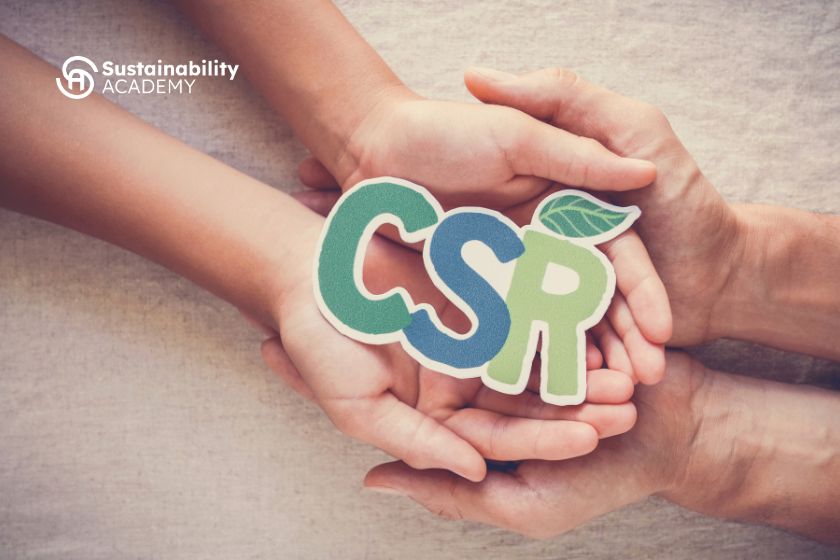Why These Values Matter
CSR (Corporate Social Responsibility) often focuses on goals, budgets, and outcomes. Yet many initiatives fall short when communities feel overlooked, unheard, or disrespected. That’s why trust, dignity, and empathy should sit at the heart of CSR design and delivery.
In an interview with TheCSRUniverse, Ms. Santhi Periasamy,head of RYTHM Foundation (the CSR arm of QNET), argues that true social change happens when organizations walk with communities, not for them. She insists CSR must be about partnership, not charity.
Beyond her insights, academic research supports this: firms in societies with higher empathy levels tend to commit more thoroughly to CSR. Also, stakeholder engagement studies show that when communities perceive fairness, empathetic communication, and voice, they accept CSR projects more readily, largely because those attributes increase trust.
Thus, building CSR based on trust, dignity, and empathy is not merely a moral aspiration. It’s a strategic necessity.
Benefits of Value-Driven CSR
1. Deep stakeholder buy-in
When people trust the motives and methods of a CSR programme, they participate more actively. Empathy and respectful inclusion make them partners, not passive recipients.
2. Higher legitimacy and acceptance
In many cases, local resistance undermines CSR. But where communities see their perspectives reflected, and when they are treated with dignity, the friction drops. Research shows that information sharing, procedural fairness, and empathy drive local acceptance via trust
3. Better sustainability and continuity
Projects based on trust tend to last. Periasamy describes how RYTHM phases out direct involvement by transferring ownership to local groups and linking to institutions.
4. Enhanced corporate reputation
Trust is fragile but powerful. A firm that consistently acts with integrity builds brand equity. Springer research on trust and CSR emphasizes that irresponsible behavior erodes social trust, and rebuilding trust is far costlier than maintaining it.
5. Internal alignment and morale
When an organization’s CSR values match its internal culture, employees feel more motivated. Studies on dignity in CSR show that treating people as ends in themselves—not means—improves well-being and organizational commitment.
6. Stronger stakeholder support via perceived morality
Recent work in CSR communications reveals that stakeholders care more about a company’s morality (i.e. ethical intent) than just competence. CSR that reflects moral integrity boosts stakeholder backing.
How to Embed Trust, Dignity & Empathy in CSR
Below is a roadmap you can follow.
Step 1: Begin with listening & dialogue
Hold listening sessions before designing programmes. Ask open questions, surface fears and hopes, and invite community co-design. As Periasamy stresses: do not prescribe; diagnose.
Step 2: Communicate transparently
Share budgets, timelines, risks, and challenges. When things go off track, admit it. Transparency reduces suspicion and strengthens trust.
Step 3: Provide agency & uphold dignity
Design roles so community members lead parts of the implementation. Avoid language like “beneficiaries”; use “partners” or “co-creators.”
Step 4: Train teams in empathy & cultural humility
Empathy is not inherent — it develops. Use workshops, immersive field visits, reflection sessions. Equip teams to listen without judgment, to slow assumptions, and to ask rather than assume.
Step 5: Build accountability loops
Install feedback mechanisms: community review panels, suggestion boxes, grievance redress, periodic review sessions. Let people criticize and shape the programme as it runs.
Step 6: Plan an exit or handover strategy
From the start, work toward independence. Map out how local leadership, institutional linkages, and capacity building can continue the impact after external funding ends.
Pitfalls to Avoid
-
Using empathy as a marketing veneer
-
Imposing standard models without local adaptation
-
Overlooking the cost of maintaining trust
-
Ignoring failures instead of owning them
-
Failing to respect local culture and knowledge
Real-World Examples
RYTHM Foundation’s approach
RYTHM works across Asia and Africa in education, empowerment, and environment. Periasamy recounts how she began work with indigenous communities in Malaysia by spending months building trust before launching initiatives.
One programme in Eastern India taught women microenterprise skills while deliberately building institutions so they could sustain themselves later.
In another, RYTHM partnered with Mann Deshi to support rural girls in Maharashtra through sports and leadership. The goal: expand agency, challenge gender norms, and spark self-reliance.
Academic evidence
The cross-country study on empathy and CSR shows that societies with higher average empathy levels see more robust CSR efforts.
Another study links national social trust with corporate CSR engagement: in societies with higher trust, companies tend to commit more deeply to CSR.
Stakeholder engagement research confirms that empathy, procedural fairness, and information disclosure influence community acceptance through trust.
FAQs
- What exactly do “trust, dignity, and empathy” mean in CSR practice?
Trust refers to belief in the organization’s integrity and consistency. Dignity means treating people as equals and not diminishing their agency. Empathy means seeing the world through others’ eyes and valuing their perspectives. - How soon can we see results from a values-based CSR?
You may see signs of trust (better participation, fewer objections) within months. Deep change in dignity, ownership, and reputation usually appears over several years. - Does it cost more to apply this approach?
It may require more upfront time, dialogue, training, and patience. But you reduce rework, resistance, and reputational risk. Over time, this often costs less than patching failures.
Start Building Value-Driven CSR Today
Embedding trust, dignity, and empathy in CSR is more than a moral obligation — it’s the foundation of sustainable impact. Organizations that listen, respect, and empower communities create results that endure long after projects end.
At the Sustainability Academy, we help professionals and companies develop CSR strategies that are ethical, inclusive, and measurable. Explore our Online Certificate on Sustainability (ESG) Reporting and other certified sustainability programs to learn how to transform good intentions into lasting change.

